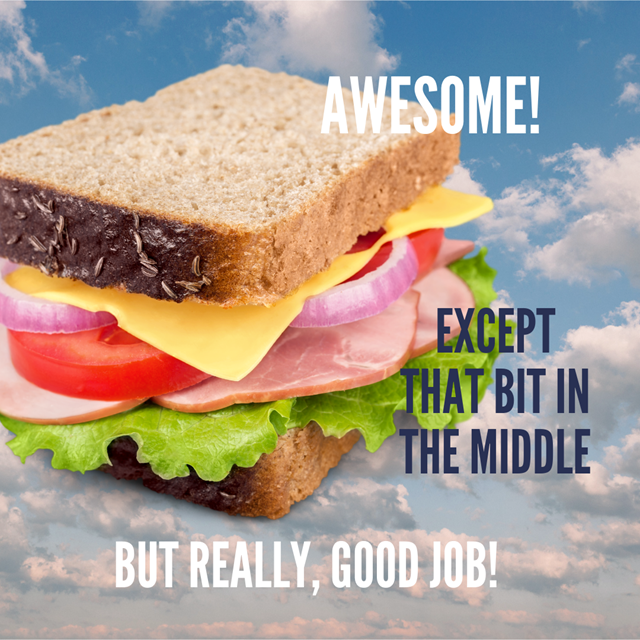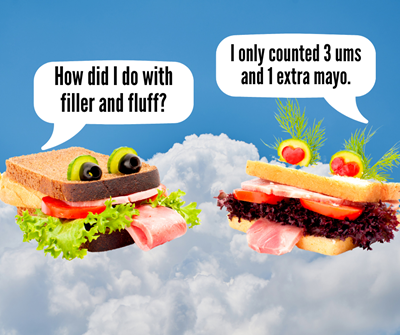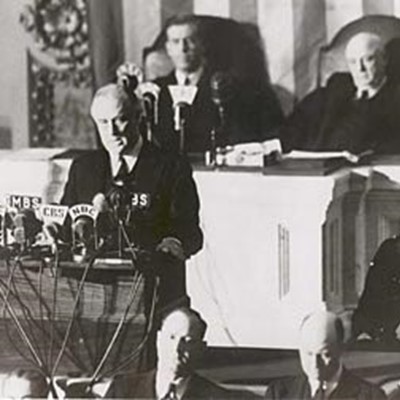
Most people in business are familiar with this menu item: the feedback sandwich.
That's when you start and end with positive comments, putting the critical (and often, most useful) information in the middle:
Bread: I liked your angle on that presentation.
Meat and cheese: But you rushed through so much of the information I missed a lot of it.
Bread: Great job on bringing a fresh perspective, though.
An executive from Brazil told one of our coaches about his struggle with being served this corporate fare: "When I first started working for an American company, I had to learn that only the meat matters. Forget about the bread!"
How to get better feedback on your public speaking
One key to getting more useful feedback when you’re presenting is to let people know what you’re looking for. Here are some ways to get to the meat of the information you need:
Give direction on the kind of feedback you want—before you present.
Often when we speak, we'll ask afterwards, "How did I do?" The answer is typically a chipper "You were great!" So try setting the stage for the kind of feedback you need BEFORE you deliver the presentation.
For example, if you have a problem rushing through material, ask a colleague to pay attention to your pace. If you've been working on cutting out the fluff and filler, ask a colleague to note how many times you fall into that bad old habit.
Ask better questions about the feedback you’re getting.
"When coaching managers to give feedback, I say 'Feedback should be specific, balanced, and timely,'" Buckley coach Katie Pope always tells us.
She suggests speakers flip that—and ask questions to pull out the specifics sandwiched between the compliments. For example, if someone says, "I liked your presentation," ask them What did you like about it? or Was there any part that could have been clearer for you?
If you've got more time to quiz them about their thoughts, Katie suggests a few more questions:
- What was your main takeaway?
- What was most interesting to you?
- How did you feel about my energy? Pacing?
Show appreciation for constructive criticism.
"Even when you don't fully agree, one of the best gifts you can give someone who's providing you with feedback is to listen," says Buckley coach Karen Kalutz. She acknowledges that we all want to hear that we did well. "But if you've asked for feedback, try not to react defensively or start explaining why you did what you did," she says.
Instead, choose someone whose input you value, hear them out, then consider privately what you feel you can use—and what you want to ignore.

What about the sandwich?
We're not opposed to telling speakers what they do well—in part, because we want them to do more of it.
We're also fans of leading with the positive. In public speaking, we've seen it's easy for people to be overly self-critical. We encourage positive self-talk. And we like coaching that takes a positive approach, too. But you'll also hear from our alumni that we're honest--and specific--in our feedback about ways to improve. We believe that's why you sought our coaching in the first place.
So yes, it looks like we may have sandwiches on The Buckley School menu.
For two different opinions on whether the sandwich is effective for giving feedback in general, you can check out this take and this one.






